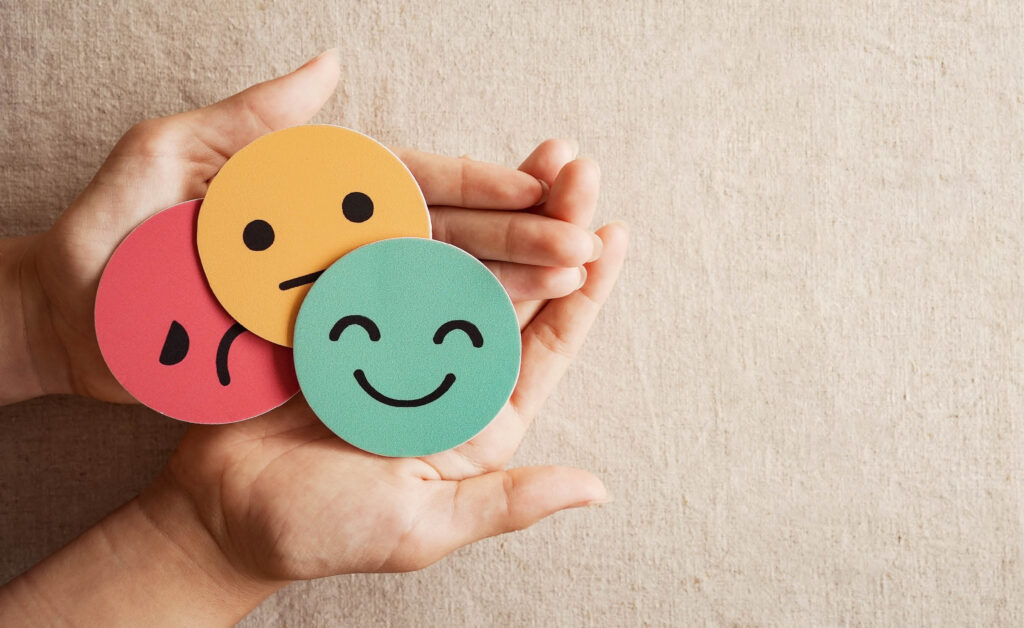by Doreen Marion Gee –
Our children and youth are fortunate to be on the receiving end of incredible advances in our knowledge of and treatments for mental health problems early in life, plus there is a plethora of educational programs to help families. One very promising direction in mental health is the concept of “emotional resilience.” Many local professionals are committed to helping young people enjoy a healthy, happy and high-quality life.
According to the B.C. Division of the Canadian Mental Health Association: “Mental illnesses are surprisingly common in children and youth. About one in seven young people in B.C. – 14 % – will experience a mental illness at some point.” The CMHA states that anxiety disorders are the most common illnesses impacting kids and youth, “causing kids to be extremely afraid of things or situations to the point that it interferes with daily life.” The next most prevalent disorders are attention-deficit/hyperactivity disorder (ADHD) and conduct disorder. Depression is also high on the list – showing up most often during the teenage years. The statistics reveal the vulnerability of this group: “Suicide continues to be the second leading cause of death among 15- to 24-year-olds in B.C.”
Judging by the news, some adults and young people are having difficulty accessing our over-loaded mental health system. Fortunately, though, it seems that many families are still managing to get the help they need. Kirsten Lauvaas, Communications Manager in the B.C. Government, relays the following information from the Ministry of Children and Family Development (MCFD): “Currently, over 27,000 children and youth receive community mental health services annually.” Catherine Casey, MSc Psych, a clinician with Saanich Child and Youth Mental Health Services, does screening, assessment and intervention for mental health problems. She offers group or individual therapy; with very young children, this is often with the parents. The clinician stresses the importance of catching mental health problems early because “the research is clear that early intervention can lead to better outcomes and can make recurrence less likely.”
Wade Maybie, Team Leader of Child and Youth Mental Health teams in Saanich and the South Island (Multicultural Outreach), is a registered nurse with an MA degree in Creative Arts Therapies. He is encouraged by the times we live in: “We have never had more knowledge and experience in mental health, including skills and strategies.” Obsessive Compulsive Disorder is often formally diagnosed in childhood – with several useful and simple strategies under their belt, “many children and teens with OCD can walk away from our services with the skills and knowledge to take charge of their life again.” Wade and his teams offer services to children, youth and their families and they support them with skill-building, peer support and the latest research. Every avenue is pursued: “We have several very successful groups such as ‘Parent Connect’ and we have a long-standing group for teens seeking to recognize and manage anxiety and depression,” he says.
The best prescription is always prevention. Catherine Casey: “To me, the more important issue is using the knowledge we have in society to prevent mental health problems in the first place. We know that toxic stress damages a child’s developing brain and increases their susceptibility to both mental and physical illness.” She believes that “we also need to look at how we can provide resources to families earlier to break the cycles of early distress that have lifetime effects. The good news is that we know so much more about building resilience and protective factors that can counter the effects of toxic stress.” Focusing on emotional resilience seems like a
very progressive and promising preventative approach. Essentially we are giving children and teens a mental toolbox of coping skills that will strengthen them for life. Dr. Kenneth Ginsburg, MD, in his book, A Parent’s Guide to Building Resilience in Children and Teens: Giving Your Child Roots and Wings, identifies the seven “C”s of resilience: coping, competence, confidence, connection with others, character-building, contribution and control.
The FRIENDS program in B.C. schools puts principles of prevention into an effective action plan, teaching kids valuable life skills. It is an evidence-based anxiety-prevention and resiliency-building initiative that has been in schools since 2004. The Australian-based program is coordinated by MCFD staff, who train teachers and educators in the course curriculum. “FRIENDS promotes self-esteem, problem solving skills, psychological resilience, self-expression, and positive relationships with peers and adults (MCFD).” There are three levels: Fun FRIENDS (Kindergarten and Grade 1); FRIENDS for Life (Grades 4 and 5); and My FRIENDS Youth (Grades 6 and 7). The program “focuses on increasing the emotional health of all children in a classroom.”
The children and youth of today have a much better shot at good mental health than kids of my generation ever did. As always, parents play a vital role in the healthy development of kids and teens. I end with Catherine Casey’s tender words: “Be a secure base and soft place for your children to land as they continue to grow and explore their world.”
Contacts: FRIENDS: http://tinyurl.com/gw6kg7z; Saanich Child and Youth Mental Health Services: #201 – 4478 West Saanich Road, 250-952-5073.




